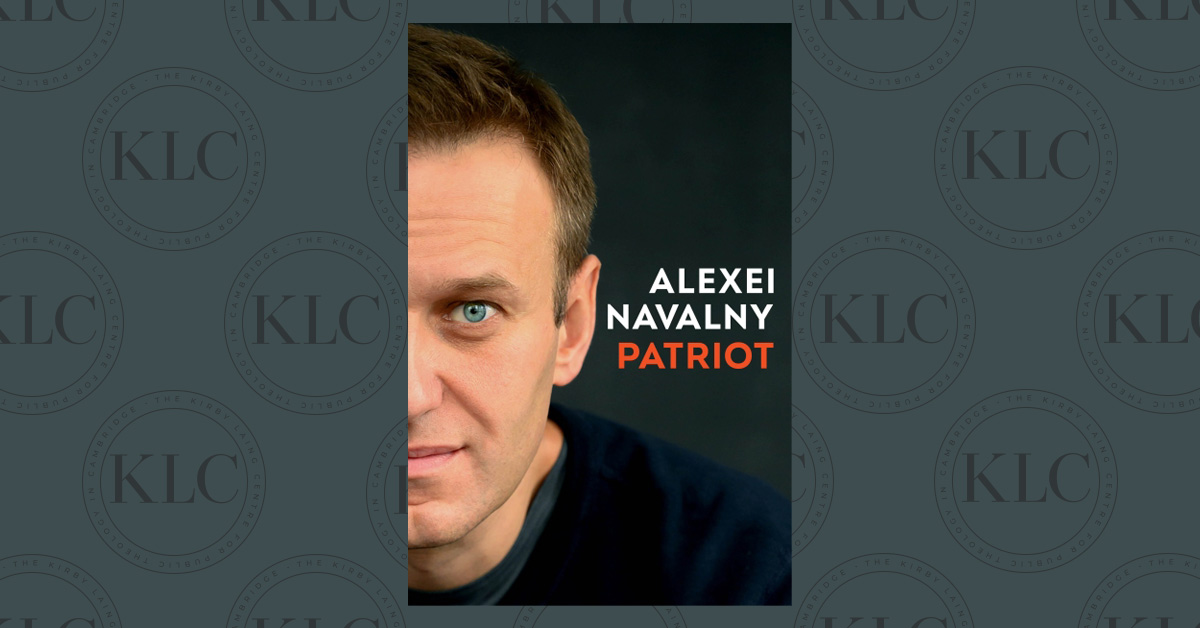
By Craig G. Bartholomew
I have written before about Alexei Navalny. Recently I picked up his memoir Patriot (London: Penguin, 2024). It is, of course, published posthumously. Wikipedia reports that “On 16 February 2024, at 14:19 Moscow time (11:19 GMT), the Russian Federal Penitentiary Service (FSIN) of the Yamalo-Nenets Autonomous Okrug announced that Russian opposition activist and political prisoner Alexei Navalny died while serving a 19-year prison sentence in corrective colony FKU IK-3, in the village of Kharp in the Russian Arctic.”
Mystery surrounds his death with many fearing that he was murdered. Certainly, in my view, Putin needs to be held responsible for his death. Much of the memoir relates to his imprisonment, and it is clear that medical care was minimal to non-existent. Intriguingly, the prison officers wore video cameras that were activated when dealing with Navalny so that – gruesome as it is – the Kremlin could easily reveal what happened if so desired.
Navalny’s memoir is moving and instructive, as he sets out his formation into the political force that he became. I am in awe of his courage and resilience and integrity. This, one thinks, is just the kind of leader we need. Alas, it is the kind that Putin finds intolerable. Theologically, this connects with an important component of the doctrine of sin. It has often struck me that sin means that it is not that there are not solutions to the many problems we face, but that we ignore or reject them. This is the irrationality of sin, its madness.
Navalny’s untimely death is a tragedy, but his legacy is not. We can make sure of this by familiarising ourselves with his story – read Patriot and alert your friends to it – and receiving from him the struggle for a free and healthy Russia and the courageous opposition to corrupt authoritarianism.
Navalny’s Christian faith has long intrigued me. It is not front and centre in Patriot, I think because his advisors discouraged him from speaking about it. Nevertheless, it is present and clearly so. It was the birth of his daughter Dasha, in 2001, that moved him away from atheism: “Like anyone who grew up in the Soviet Union, I had never believed in God, but looking now at Dasha and how she was developing, I could not reconcile myself to the thought that this was only a matter of biology. … From a dyed-in-the-wool atheist, I gradually became a religious person.” (181)
At one of his endless hearings while imprisoned, Navalny spoke eloquently about his faith and its role in his life, resilience and politics. Pages 325-331 are must reading. I would quote them all if I could! Alexei leverages the beatitude “Blessed are those who hunger and thirst for righteousness for they will be filled” to great and moving effect. At a personal level he notes, “But I am a believer now, and I find it helps me a lot in the work I do.” (326) At a social and political level he relates it to a commitment to truth: “Being able not to lie is just amazing.” (328)
SIR BILL BROWDER
You may recall that Bill came to speak for us in Cambridge. His books Red Notice and Freezing Order remain must reads. Great news is that Bill was recently knighted and is now Sir Bill Browder. Huge congratulations! Bill dedicated his knighthood to those who have been killed or imprisoned through opposing Putin.